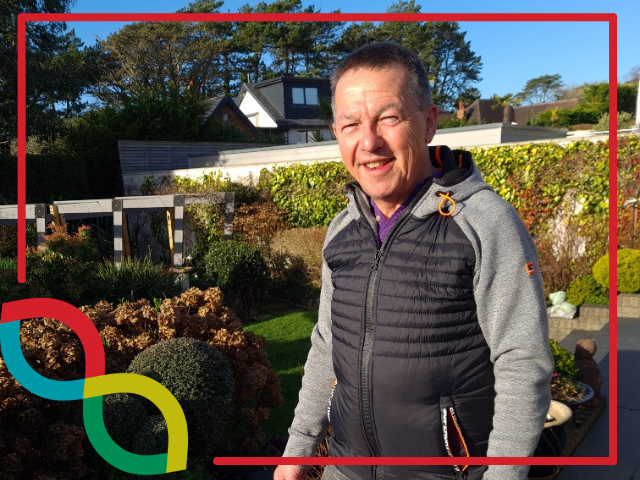
Weekly insulin treatment offers hope to people with diabetes in Wales
25 January
In January 1922 Leonard Thompson from Canada received the first injection of insulin, but without research this never would have happened. Since this first treatment researchers in Wales have been working on innovative ways to treat diabetes with this life-saving drug.
An new investigational weekly insulin treatment being trialled at Singleton Hospital in Swansea offers hope of a better quality of life for people with diabetes.
All people with type 1 diabetes inject insulin many times a day to control their blood sugar levels, which involves careful monitoring of their body and what they eat. Many people with type 2 diabetes also need to inject insulin as part of their treatment.
This long-acting insulin treatment is only injected once a week compared with other insulin treatments, which are taken every day.
Professor Steve Bain, Specialty Lead for Diabetes at Health and Care Research Wales and Principal Investigator for these trials, said: “Early diabetes treatments involved lots of painful injections for patients and the insulin used then was less pure, which led to more side effects.
“Fortunately, research has moved treatments forward and the daily life of people with diabetes is much better now, but some still have to take four or five injections a day.
"This new insulin we’re trialling could mean fewer injections and potentially a better quality of life for people with diabetes.”
There are two clinical trials underway in Singleton Hospital. ONWARDS 6 is testing how the once-a-week insulin works for people with type 1 diabetes and ONWARDS 1 is for those with type 2 diabetes. Both trials are delivered by the Joint Clinical Research Facility in Swansea Bay University Health Board.
David Morgans, 70, is a retired primary school teacher from Sketty in Swansea. He was first diagnosed with type 1 diabetes in 1969 when he was 17 years old and is taking part in the ONWARDS 6 trial.
David said: “When I was diagnosed with diabetes it was almost a relief to find out. My uncle sadly died of type 1 diabetes when he was 21, so when I started to lose a lot of weight and have other symptoms as a teenager I went straight to my GP. I was given an insulin injection and within a few days I was feeling better.
“Taking part in research has helped me to learn more about diabetes, as well as new developments in treatments and technology. I’ve lived with diabetes for more than 50 years and so much has improved thanks to research. When I was first diagnosed we didn’t have disposable syringes or blood glucose monitors, which now make it easier to take insulin. If this once-a-week insulin trial is successful, hopefully it will benefit many people like me as well as future generations.”
Dr Nicola Williams, Director of Support & Delivery at Health and Care Research Wales, said: “It’s thanks to the development of insulin treatment that people with diabetes today can live long and healthy lives. Health and Care Research Wales continues to support and deliver research breakthroughs here in Wales which will improve the lives of people with diabetes across the UK and internationally.”
Find out more about how you can be part of health and social care research in Wales
[First published 19 January 2022]